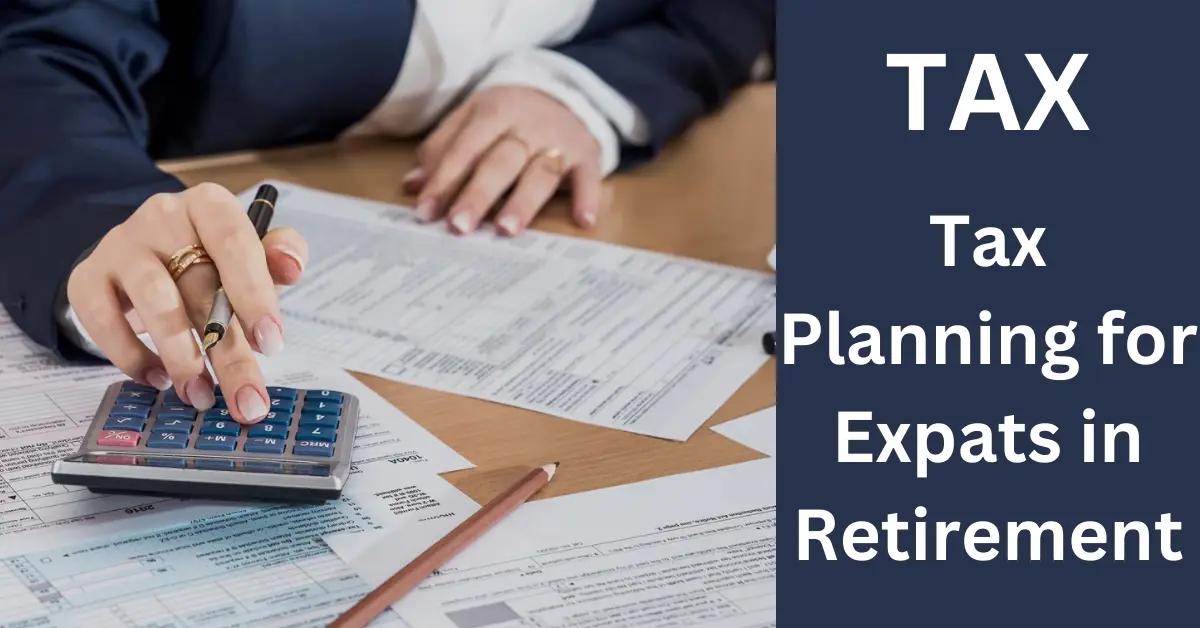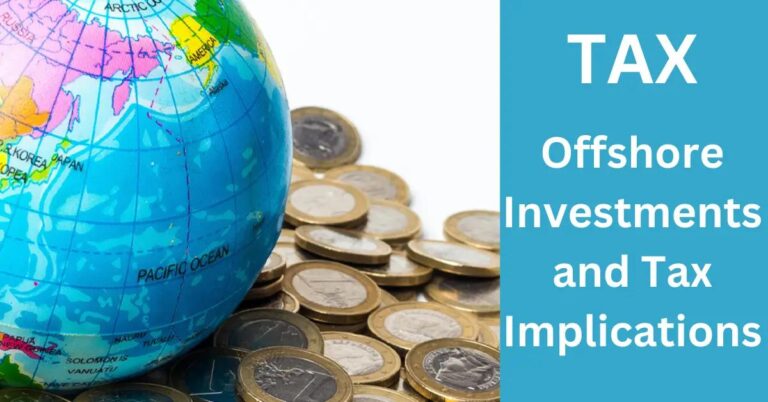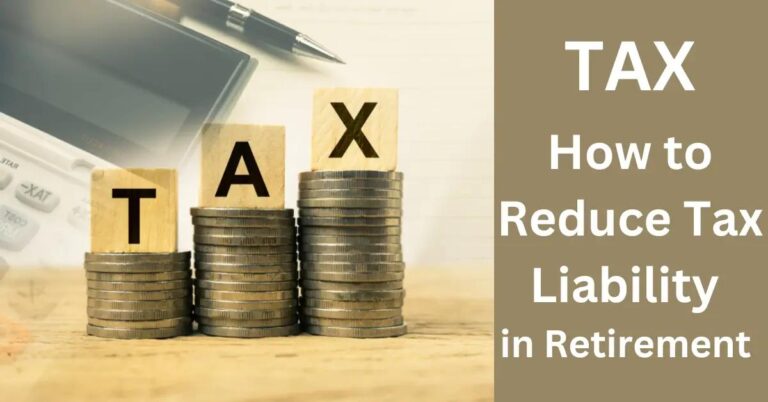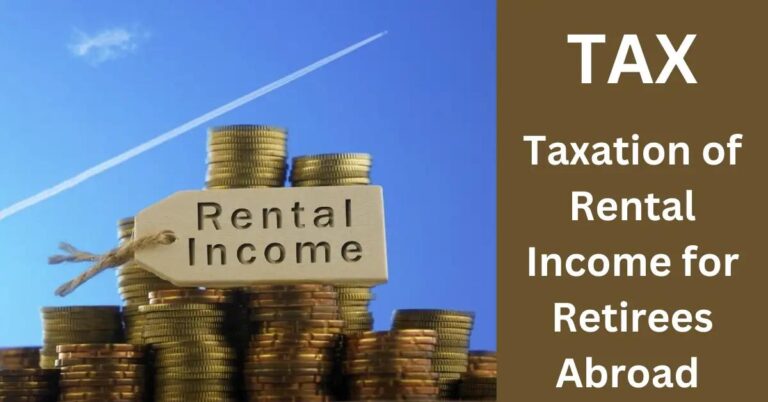TL;DR:
- Expat retirees are generally taxed on pensions and rental income; use tax treaties to avoid double taxation.
- Early planning and knowing international tax treaties can significantly affect tax liabilities.
- Regularly review financial plans to adapt to changing tax laws and personal situations.
- Tax treaties help prevent being taxed twice; understand which treaties affect your retirement circumstances.
- Use foreign tax credits to minimize double taxation, and ensure accurate and thorough income reporting.
- Offshore investments and tax-efficient accounts may offer benefits; consider pension drawdown plans and familiar tax-free options like Roth IRAs for U.S. expats.
- Tax-friendly retirement destinations include Panama and Portugal, which may offer substantial savings on foreign income.
- Seek specialized expat tax advice to navigate international taxes efficiently and legally while planning financially secure retirements.
Retiring abroad is a dream, but tax planning as an expat can turn it into a nightmare if done wrong. As we delve into tax planning for expats in retirement, you’ll learn strategies to save money and avoid pitfalls. With insights on international tax treaties, double taxation, and investment options, I'll guide you on every financial detail. Let's ensure your golden years remain stress-free and financially savvy!
What Are the Key Tax Planning Strategies for Retirees Living Abroad?
Let's dive into how retirees living overseas take on taxes. When you're an expat retiree, taxes can seem a bit like a jigsaw puzzle. You might ask, "What taxes do retired expats pay?" The answer depends on where you live and where you earn income. Generally, you face income tax on pensions and rental income. Some countries are kinder, offering lower tax rates or exemptions for retirees.
So, how do expats plan for retirement? A lot is about strategy and knowing overseas retirement tax implications. Early planning is key. You’ll want to learn about tax treaties between your home and host countries. These treaties can save you from double taxation. Consider working with a tax advisor who knows expat tax planning.
Another big tip for expat retirees is to keep an eye on foreign exchange rates. Any change can affect your pension value or local tax bills. Also, use tax-efficient accounts in either your home or host country to shelter income.
Now, why is early planning essential? It's to avoid surprises later. Taxes change with new laws and personal situations. Review plans often and adapt. Periodic reviews help keep your finances healthy and compliant. Know the latest tax planning strategies for retirees living abroad.
In short, a happy overseas retirement needs informed tax planning. You'll navigate better with strategies, awareness of tax treaties, and regular check-ins. Then, you can enjoy your foreign home without tax woes creeping up.
How Do International Tax Treaties Affect Expat Retirees?
International tax treaties help expat retirees avoid being taxed twice. Many countries have agreements to define how residents are taxed on income from another country. These treaties aim to prevent double taxation and encourage fair tax practices internationally.
"Do you have to pay taxes on retirement from another country?" Yes, but benefits may depend on treaties. For example, you might live in Spain with a pension from the U.S. Under a treaty, Spain might tax your pension, while the U.S. might not.
Understanding the details of these treaties is key to benefiting from them in retirement. Start by identifying which treaties affect your situation. Many countries provide online resources to explain how their treaties impact citizens. Check the tax authority website of your retirement destination for guidance. You can also consult with a specialized tax advisor who has expertise in international tax planning.
"Can treaties help with taxes in Asia?" Yes, many Asian countries have treaties. Japan and India, for instance, have agreements to lessen tax burdens on retirees. Always study specific provisions on pensions and taxation in each treaty. Some treaties might exempt certain pensions from double taxation or allow credits to offset taxes paid to another country.
Additionally, popular retirement locations like Portugal and Thailand have tax treaties with various countries. Retirees in such places often benefit from reduced or eliminated taxes on pensions. Find out which countries have favorable tax treaties with your home country. Doing so can lead to smart financial decisions and potential savings.
Using tax treaties wisely involves understanding their scope and applying their provisions to your advantage. This process assists in making informed decisions about where and how to receive retirement income. Careful planning will ensure you are not paying more taxes than necessary in your new home.
How Can Expats Avoid Double Taxation in Retirement?
Double taxation happens when you pay taxes twice on the same income. For expats in retirement, understanding this is vital. Imagine getting taxed both in your home country and where you retire. This is common and can be a shock if you are not ready.
So, how are expats taxed in the US? In short, expats must report worldwide income. This means you have to tell the IRS about all your earnings, even from abroad. But you are not always taxed on all of it.
Now, what taxes do retired expats pay? You pay taxes on foreign pensions and other income. Each country has rules, so it’s crucial to know them.
To avoid double taxation, use strategies like foreign tax credits. These credits help you reduce taxes owed in your home country. If you pay taxes overseas, you might get a credit for that amount. It’s like a discount on your tax bill back home.
Another way to lower double taxation is reporting foreign income correctly. This helps avoid fines and hefty back taxes later. Always keep detailed records and declare everything you earn.
Next, look to tax treaty benefits. Treaties between countries can save you money. They stop you from paying taxes twice on the same income. Learn the treaties your home and retired countries have. They are your shield against double payments.
To dive deeper into double taxation avoidance for expat retirees, consider consulting tax experts. They help navigate tricky tax waters and ensure compliance. They offer peace of mind and make sure you only pay what you owe.
Expats, plan smartly. Use these tactics to keep your taxes fair and less stressful.
What Are the Tax-Efficient Pension and Investment Options for Expats?
Expats planning for retirement need tax-efficient strategies. Start with a pension drawdown plan. Choose how and when to withdraw funds. This helps lower tax and keeps income steady.
Offshore investments can offer tax benefits. They come with both pros and cons to weigh. Pros include possible tax savings and diverse options. Cons can be higher fees and complexities in rules. Always review the specific laws in the country where you live.
Next, let's talk about income strategies. Focus on avoiding taxes that take away your earnings. Using tools like bonds or managed funds might be effective. Find the best mix for your own situation.
Now, consider the Roth IRA if you are a U.S. expat. This can be a smart part of your retirement plan. Contributions grow tax-free, and withdrawals are too, if you follow rules. It's essential to understand how another country will tax the Roth IRA.
A vital fact is some countries have tax-free setups for retirees. When checking these, consider health costs, lifestyle, and laws. They are crucial since taxes can affect your retired life. A country that offers pension taxation benefits could make a big difference.
Expats need solid advice on taxes. Meet with a tax specialist who knows expat rules. It prevents errors and finds better strategies. Early planning sets the stage for a secure, comfortable retirement.
Which Are the Best Tax-Friendly Retirement Destinations?
When thinking about retirement, it's key to compare tax rates. Some countries offer lower taxes to help keep your money longer. For example, Malaysia and Panama have appealing tax benefits for retirees.
You might wonder about the best tax-friendly places to retire. Panama does not tax foreign income. This means if your money comes from outside, you pay no income tax. Malaysia also offers incentives through its Malaysia My Second Home Program.
The next question is, which are the best expat retirement countries? Some places, like Portugal, draw attention with Non-Habitual Resident status. During this period, retirees may enjoy tax-free living on many types of income for up to ten years.
Now, you need to assess your tax obligations in places you like. Each country has its own rules. For example, Costa Rica taxes only their residents on local income. This could mean you pay less tax if most of your income is from foreign sources.
So, how do you match lifestyle with tax benefits? Choose a country that fits your way of living and offers tax breaks. Thailand offers a warm climate with some tax advantages for retirees with international income sources.
It's wise to consider all these factors in your retirement plans. Each destination presents both perks and challenges. Save money and enjoy retirement by knowing tax laws before you move.
How Can Expats Manage Their Retirement Savings and Investments?
Managing retirement savings as an expat can feel complex. It's important to optimize your savings. First, focus on managing your foreign savings accounts. Keep your money in an account that offers good interest rates. A reputable expatriate financial advisor can help. They provide guidance tailored for expats like us.
How do expats plan for retirement? Start with cross-border pension management. This means understanding pension rules in both your home and host countries. Each nation has its own way of taxing pensions. It’s crucial to know these to avoid losing money unnecessarily.
Succession planning is also vital. Think about who you want to inherit your assets. Different countries have different inheritance tax laws. You need to plan according to these laws to protect your loved ones. Make sure your will aligns with the legal system in your host country.
Do not forget about inheritance tax. Some countries have high inheritance taxes that can cut into your family's wealth. Knowing the laws ahead of time can save your heirs from surprise expenses.
Using expatriate financial advisory services can be very helpful. These services help navigate laws and maximize savings. They are experts in financial planning for expats retiring abroad and can help take away confusion.
Finally, regularly review your plans. Your life and the market change, and your plan should too. Staying informed and flexible can keep your finances healthy. It’s not just about saving; it’s about making the most of what you have.
What Tax Filing Obligations Do Expat Retirees Face?
Expats in retirement must understand their tax duties. What taxes do retired expats pay? Expats usually pay taxes in both their home and host countries. Often, you need to file an expatriate tax return in your home country. This means reporting any foreign income, which includes pensions and investments.
How are expats taxed in the US? In the US, expats must file annual tax returns if their total worldwide income exceeds certain amounts. You may use the Foreign Earned Income Exclusion or Foreign Tax Credit to avoid double taxation. It's essential to know that your move can modify your tax filing needs.
When you relocate, watch for changes in tax filing rules. You might need to report a change of residence or adjust your income reporting. Different countries have unique rules, so check what applies in both your home and host country.
To stay compliant, follow these best practices. First, keep detailed records of your income and tax documents. This helps ensure accuracy in your tax returns. Second, stay updated on changes in tax laws. These can occur at any time and might affect your filing needs. Lastly, consider using expat tax consulting services. These professionals know the latest tax laws and can help guide you.
Tax consulting services provide expertise and may reduce your stress during tax season. They can help you explore tax treaty benefits and other ways to minimize legal tax duties. To navigate these rules confidently, make use of these services. To learn more about expat taxes, visit resources like the IRS guide on US citizens living abroad.
Understanding your tax filing obligations as an expat retiree can keep you clear of penalties. Good preparation and expert guidance help ensure compliance with all necessary laws.
How to Minimize Tax Liabilities and Penalties in Expat Retirement?
You want to spend your golden years enjoying life, not worrying about taxes. So, how can you minimize tax penalties and liabilities as an expat retiree?
Do you have to pay taxes on retirement from another country? Yes, you may pay taxes on income in both your resident and home countries. But with smart planning, you can manage these demands.
Start by evaluating tax deferral strategies. You can defer taxes on some investments until you withdraw the funds. For instance, if you have retirement accounts, such systems can provide tax relief.
It's also wise to see if you can use overseas tax relief. Many countries have agreements to avoid taxing income twice. Check these agreements and know what rules apply to your income. The key is to understand the agreements between your home and host country.
Managing tax withholding is another important step. Ensure you're withholding the correct amount from any pension or retirement income. Wrong withholding can lead to hefty penalties. Keeping good track and proper documents is vital.
Now, what about avoiding tax double jeopardy? Proper documentation helps you sidestep this issue. Secure detailed records of all foreign income and taxes paid. This approach ensures you don't pay more than necessary, according to agreements between countries.
What's the best tax-free place to retire? Countries like Panama and Portugal offer tax-friendly environments for retirees. But, each expat’s case is unique. Before finalizing a retirement spot, consider both lifestyle and tax benefits.
To sum it up, thoughtful planning and documentation can protect your nest egg from tax pitfalls. For more insights, the US IRS website provides updated and helpful resources.
Conclusion
Planning your taxes as a retiree abroad is complex but crucial. We explored tax planning, treaties, and how to avoid double taxation. We also discussed efficient pension strategies, tax-friendly destinations, and managing investments. Early planning and reviews are key for staying compliant and optimizing benefits. Understanding international tax laws and seeking expert advice can secure your financial peace. Remember, smart tax planning enhances your retirement adventure abroad.












